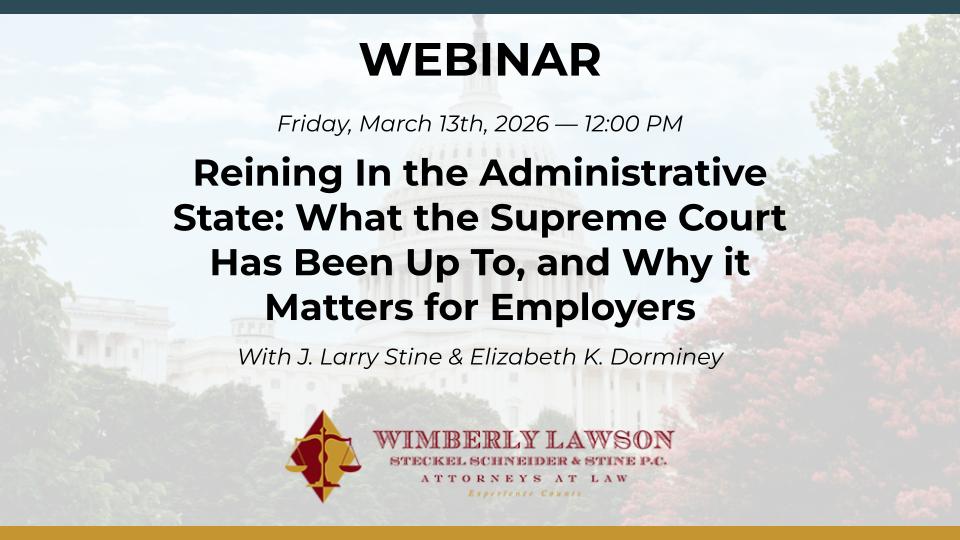Recent Ruling Limits At-Will Provisions of Employee Handbook
Most employers have employee handbooks, and most employers have done a pretty good job of including at-will statements therein and statements that the handbook does not constitute a contract of employment. However, a recent decision of the Alabama Supreme Court has alarmed many employers as to the sufficiency of their handbook provisions. Davis v. City of Montevallo, 2023 Ala. Lexis 7 (January 13, 2023).
In this case, the handbook contained provisions that employment was at-will and also included a disclaimer in the handbook that stated it does not create any contract whatever. Unfortunately for the employer, the Alabama Supreme Court rejected arguments based on these provisions, reasoning that the employees' status as at-will was irrelevant to the question of whether the employer had to follow stated discharge procedures, because the reason for termination is distinct from the means of termination. The court also rejected the disclaimer because the disclaimer only applied to a contract of any specific period of time. The court further rejected the sufficiency of the contract disclaimer stating the employer retained the freedom to change the policies and procedures, noting that the employer's stated right to change it procedures was different from language expressly reserving the right to deviate from those procedures.
The court relied on the fact that "an employee handbook can represent a binding contract obligating the employer to satisfy certain conditions precedent to dismissing an employee." It found that the detailed step-by-step discharge procedure was worded in mandatory terms, including the pervasive use of "shall" when describing the discharge procedures. The court found that the use of such mandatory terms demonstrated that the employer chose to make some provisions in the handbook, specifically the discharge procedures, binding on the employer.
The ruling reversed summary judgment in favor of the employer and sent the case back to the trial court to determine whether the employer violated the handbook's discharge procedures.
Three dissenting members of the court found that the disclaimer language "I understand that nothing in this handbook . . . places a limitation on . . . the city's freedom to terminate the employment relationship at any time" was effective to disclaim away any binding contract. Nevertheless, the Alabama Supreme Court relied on technical reasoning to determine that the average employee would have interpreted the handbook provisions regarding the mandatory discharge procedures as binding.
Editor's Note: This decision and its reasons may send "shockwaves" through the employer community, suggesting employers be extremely careful in the drafting of handbook disclaimers, and also to get a competent labor and employment law attorney to carefully review them.
This article is part of our March 2023 Newsletter.
View newsletter online
Download the newsletter as a PDF
Related Content
Get Email Updates

Reining In the Administrative State: What the Supreme Court Has Been Up To, and Why it Matters for Employers

TPS Update (as of 2/6/2026)

Job Interviews Can Be a Good Selection Device

Suggestions on How to Diffuse a Tense Situation

Employers Blame Unions for Recent Shutdowns




